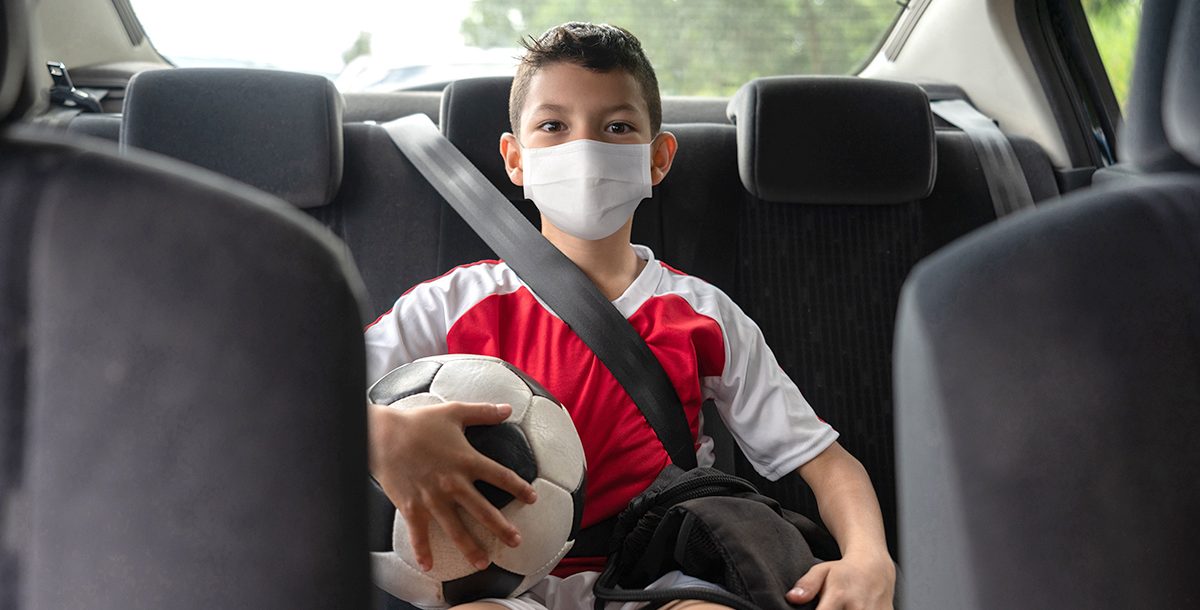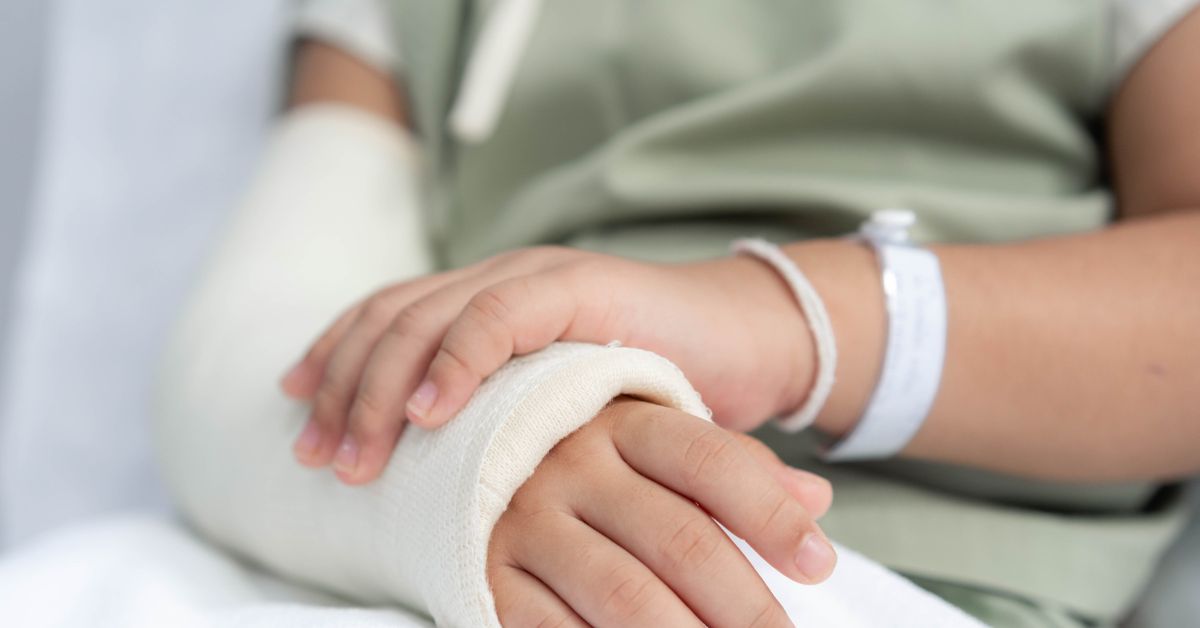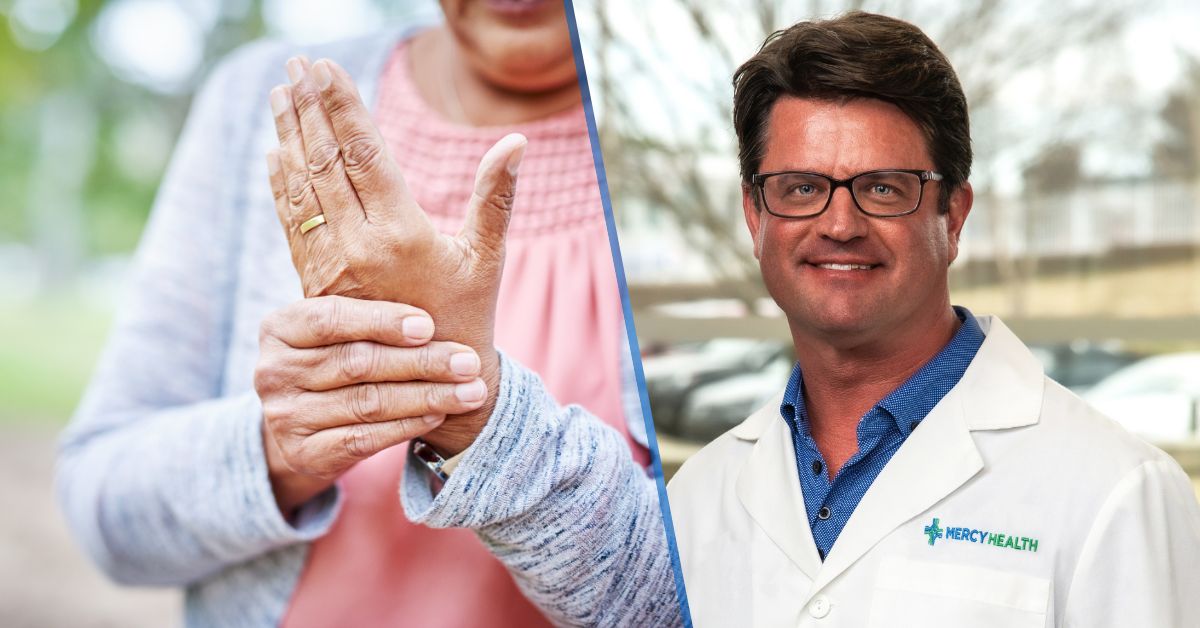The COVID-19 pandemic has definitely created challenges when it comes to our kids participating in recreational sports. Sports leagues look a lot different for our children right now than they did just one year ago. In some cases, leagues have been cancelled or postponed.
“It’s imperative to understand the increased risk for transmission of COVID-19 associated with sports,” shares Jason Smith, DO, a Mercy Health orthopedic sports medicine physician.
COVID-19 risk levels with recreational sports
The Centers for Disease Control and Prevention (CDC) states that the spread of COVID-19 can be different depending on the type of sport a child is participating in.
- Lowest Risk: performing skill-building drills or conditioning at home, alone or with members of the same household
- Increasing Risk: team-based practice
- More risk: within team competition
- Higher risk: full competition between teams from the same local geographic area (city or county)
- Highest risk: full competition between teams in different geographic areas (outside county or state)
It is true that older adults as well as individuals with pre-existing conditions are at the greatest risk with COVID-19. However, even though it’s rare, there are reports of a multisystem inflammatory syndrome in children (MIS-C) that is associated with this virus.
“The most severe cases of this syndrome are affecting younger children, but 15% of severe symptoms are occurring in high school or college athletes,” says Dr. Smith. “Additionally, approximately one-third of all patients infected with COVID-19 have some cardiac involvement, even if they were asymptomatic.”
Staying safe during recreational sports
If you do decide to have your child participate in recreational sports, having them practice preventive measures will help keep them and everyone else safer. Here are a few things to keep in mind when sending your kid off to their sporting practice or event:
- Take their temperature. Check it before heading out the door. If it is over 100 degrees, let the coach know your child will be sitting this one out.
- Do a quick “social circle” evaluation. Has anyone in your circle tested positive for COVID-19? Have you spent time with them in the last two weeks? If yes, stay home and monitor your child’s symptoms.
- Keep their hands clean. Before heading out, have you child wash their hands with soap and water for 20 seconds. Also, have them use hand sanitizer upon arrival and departure from practices/games. You can even send a hand sanitizer bottle with your kid to use after touching shared equipment.
- Remind about “respiratory etiquette.” Remind your kids to not spit and always cover coughs and sneezes with the inside of their elbow. Washing or sanitizing their hands immediately after a sneeze or cough is important too.
- Stock up on cloth face coverings. While masks may not be required during actual play, kids should be encouraged to wear them while on the sidelines and before/after practices or games. Have a few on hand and wash them frequently.
- Pack your own water bottle and snacks. Communal food and drinks should be avoided at this time to help prevent the spread of COVID-19. Be prepared and pack your kid their own water.
- Bring a towel. Especially if playing sports outside in the summer heat, pack a towel for your child. Make sure they know it is only for them to use.
- Stay outside. Prioritize outdoor, as opposed to indoor, practice and play as much as possible.
And for parents, you need to always set a good example for your kiddos. While at their practice or game, be sure to wear a face mask, maintain proper physical distancing from other spectators and sanitize your hands when appropriate.
Another concern as kids reenter the recreational sports world is injuries. If your child has not been as active as usual, injuries can happen if they take on too much too soon.
“In terms of avoiding injury when returning to play, the key is progression,” shares Jeffrey Johnston, MD, a Mercy Health orthopedic sports medicine physician. “Many sports are now resuming after a shortened preseason, which may predispose athletes to injury from being deconditioned. Athletes should be sure not to overdo workouts early on and allow appropriate acclimation as they get back to playing their respective sports.”
And in conclusion, Dr. Smith urges players and their families to practice safe behaviors not just with sports but throughout everyday life.
“The goal is to continue to keep our communities safe, and the best way to do that is by practicing preventative measures to limit the potential loss of life in all ages.”
Learn more about the sports medicine services we offer at Mercy Health.







1 Comment
Post a CommentEmily Bennette
I liked that you pointed out that you should make sure that kids keep their hands clean. That is good for me to understand because my nephew really wants to play basketball this upcoming spring.